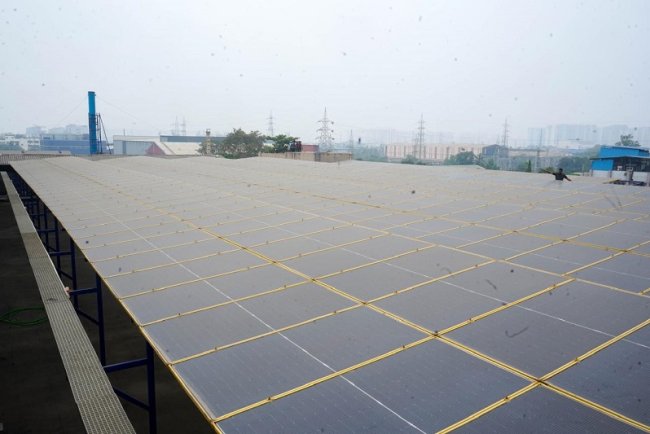TPG Acquires Altus Power In $2.2B Deal To Go Private
TPG acquires Altus Power for $2.2B, taking it private to scale operations and boost clean energy solutions.

In a major move for the renewable energy industry, TPG has agreed to buy Altus Power, the largest owner of commercial-scale solar in the United States, through its Rise Climate Transition Infrastructure strategy. The $2.2 billion all-cash deal, including debt, will take Altus Power private and delist it from the New York Stock Exchange. The transaction values Altus Power at $5.00 per share, representing a 66% premium over its October 15, 2024, closing price.
This is expected to be completed in the second quarter of 2025, subject to shareholder and regulatory approvals. Through this acquisition, Altus Power will accelerate its expansion in the commercial and Community Solar markets through TPG Rise Climate's investment expertise and the company's leading position in solar energy solutions.
It is a tremendous moment for us as a company," said Gregg Felton, CEO of Altus Power. "As a private company, we will be better positioned for long-term growth, scale operations, and enhance customer value," he added. He further noted that the collaboration with TPG will help position the company well to meet rising power demands in a sustainable way and position Altus Power to accelerate clean energy adoption.
The decision to sell the company followed a strategic review process that explored ways to unlock value for stockholders. Altus Power’s board of directors unanimously approved the deal, with stockholders representing 40% of the company’s shares already expressing their support for the transaction. Board Chair Christine Detrick described the agreement as a move that unlocks significant value for stockholders, customers, and employees alike.
Scott Lebovitz, Managing Partner of TPG Rise Climate, cited Altus Power's leadership in clean energy solutions, pointing to its exceptional track record in the commercial solar space. "We see significant potential in Altus Power's growth and its mission to drive the adoption of clean, reliable power solutions," Lebovitz noted.
The acquisition is a strategic move for TPG, which has been actively making investments in clean energy and climate transition solutions. Together with Altus Power's solar energy and TPG's resources and experience with investing, this partnership can accelerate advancements made in clean energy infrastructure.
Headquartered in Stamford, Connecticut, Altus Power is a key commercial solar power player that supplies clean energy to businesses, municipalities, and community projects across the United States. This company wants greater flexibility by scaling its operation while enhancing the offerings of the services.
As part of the transaction, a shareholder vote will be executed to obtain approval from at least a majority Class A stockholders. Other regulatory clearances will further be required in order to consummate the agreement. While change does come, Altus Power will not lose its headquarters in Stamford and instead continue as a leader in the clean energy space.
This acquisition fits into the ongoing trend of growing private investments into renewable energy firms, due in large part to the increased appetite for clean, sustainable power supplies. With businesses like Altus Power expanding markets and streamlining operations, partners with climate investment firms become of increasing value to them.
This deal comes amid a period of growth for the U.S. solar market, which recently clocked its best first quarter in industry history on the back of supply chain stabilisation. A strategic move from Altus Power and TPG has brought about an increased interest in the solar industry's performance and private investment's growing influence in the advancement of clean energy.
Closure of the transaction is expected to come by mid-2025. Industry stakeholders should be watching closely how this partnership between Altus Power and TPG will shape the U.S. commercial solar energy sector. As the clean energy transition accelerates, it's likely that this is going to be a critical milestone in the broader shift toward a more sustainable and resilient energy landscape.
What's Your Reaction?

















